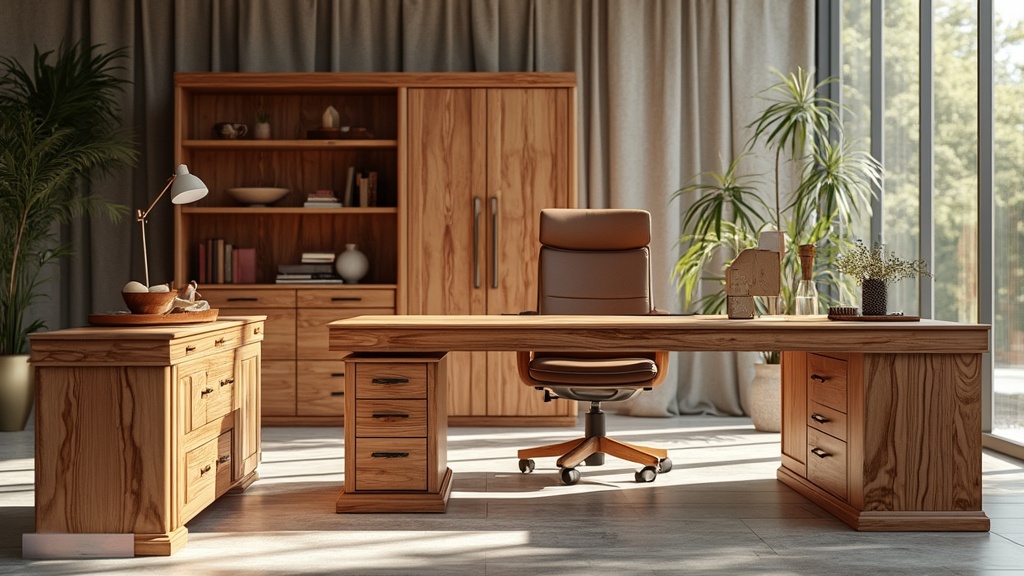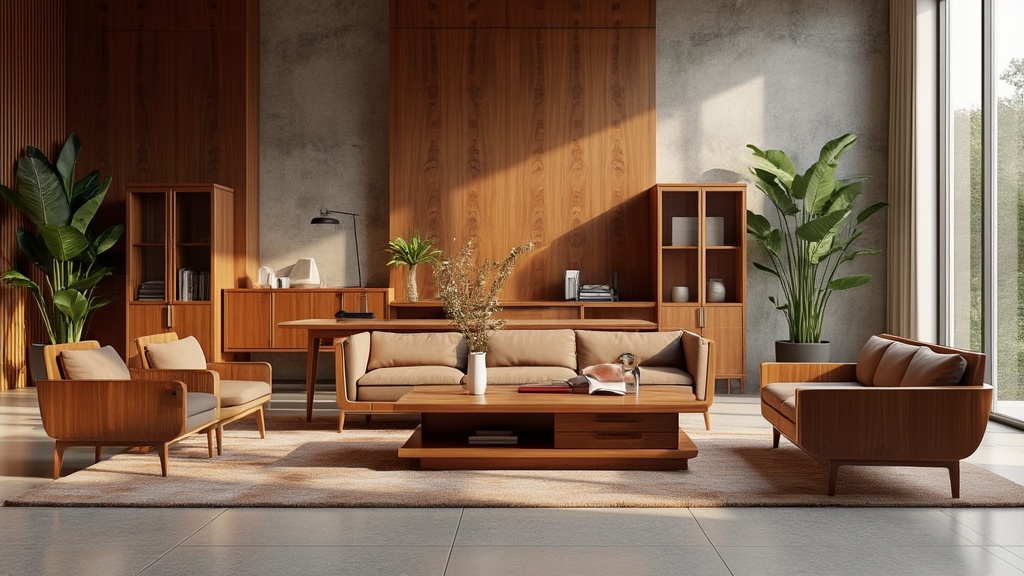Handmade furniture has gained significant popularity among discerning consumers due to its unique aesthetic, durability, and exceptional craftsmanship. High-quality handmade pieces often showcase superior artisan skills, distinctly setting them apart from mass-produced alternatives.
Today, artisan furniture reflects a commitment to sustainable design, making it increasingly sought after for both its beauty and its backstory.
This trend supports the growing movement towards regional artisans, ensuring shoppers receive uniqueness with every purchase.
Click here to learn more about: wholesale commercial furniture
Exploring Artisan Furniture Wholesale
Artisan furniture represents a category that thrives on creativity and skilled craftsmanship.
Purchasing from local artisans not only provides unique decor that resonates with regional culture but also fosters economic growth within the community. Establishing strong relationships with local suppliers can yield benefits such as:
- Competitive pricing: Developing connections may lead to better pricing options.
- Customization flexibility: Local artisans often offer tailored solutions that meet specific needs.
- Access to exclusive designs: Partnerships with artisans can result in unique, high-quality pieces.
Artisan furniture frequently incorporates ecofriendly materials, emphasizing sustainability in its production process. Supporting community artisans not only strengthens neighborhood ties but also promotes the growth of small businesses. Each handcrafted piece embodies a narrative, accentuating the value of quality craftsmanship compared to mass production.
Selecting artisan furniture aligns with ethical sourcing practices, delivering distinctive furnishings that enhance every home. By investing in these high-quality pieces, consumers enjoy the combined benefits of beautiful aesthetics and environmental consciousness.

What Makes Custom Woodwork Unique
Custom woodwork exhibits remarkable personalization options, allowing homeowners to express their distinct style. Personalized choices include selecting from a curated variety of woods, such as oak, walnut, and cherry, tailored to individual preferences and design aesthetics.
Custom dimensions can be created to fit unique spaces, significantly enhancing both functionality and visual appeal.
Unique pieces often serve as functional art within the home; examples include a handcrafted dining table that becomes a centerpiece or an accent chair that adds character.
These custom wooden creations seamlessly integrate style and utility, catering to diverse tastes ranging from rustic charm to contemporary elegance, making them indispensable in modern interior design.
Exploring Sustainable Design In Furniture
Ecofriendly materials serve as a guiding principle in sustainable design, influencing consumer choices profoundly. Popular examples of sustainable materials include reclaimed wood and bamboo, both of which are renewable resources contributing to minimal environmental impact.
Non-toxic finishes and adhesives enhance the quality of indoor air, promoting healthier living environments. As consumers increasingly gravitate towards ecoconscious products, items made from FSC-certified wood are gaining traction as desirable choices in furniture design.
Integrating sustainable pieces into existing decor
can be effortlessly achieved by mixing vintage and modern styles, providing a cohesive and inviting aesthetic.
Thrift shopping or supporting local artisans presents accessible options for those seeking to refresh their home furnishings with handcrafted items that reflect both style and sustainability.
Custom Woodwork and Sustainable Design
- Custom woodwork allows for a wide range of wood selections, including oak, walnut, and cherry, enabling homeowners to match their personal style.
- Unique dimensions can be tailored to fit specific spaces, enhancing both functionality and aesthetics in home design.
- Ecofriendly materials like reclaimed wood and bamboo are renewable resources that help reduce environmental impact in furniture design.
- Items made from FSC-certified wood are increasingly sought after, reflecting a growing consumer preference for sustainable and ecoconscious products.
How To Choose Luxury Furnishings Wisely
Making informed choices in luxury furnishings enhances both aesthetics and functionality. Quality over quantity should guide your investment in high-end items.
Begin by evaluating material quality; look for premium materials like solid wood and high-grade upholstery, often sourced from sustainable design practices.
Next, assess construction techniques; joinery methods such as dovetail joints indicate durability, while hand-finished details highlight artisanal craftsmanship.
To blend luxury pieces seamlessly into everyday living spaces, create a cohesive look with neutral palettes that allow these items to shine. Prioritize practical placements in functional areas, ensuring that luxury enhances daily experiences without overwhelming your environment.
The Appeal Of Unique Decor Items
Unique decor items provide an opportunity to express personal style and storytelling within your living space.
Handmade items bring an artisanal touch, enhancing home charisma and fostering an inviting atmosphere. Each unique decor piece can reflect personal stories, embodying experiences such as travels or art fairs.
Finding Handmade Gems
When searching for unique pieces, consider visiting online marketplaces or local artisans known for craft furniture.
This approach supports community artisans while providing access to exclusive designs that are not readily available through mass production.
Integrating Unique Decor
To ensure compatibility, integrate new decor seamlessly within existing themes, employing color and texture to achieve harmony. Unique pieces can enrich your home’s aesthetic by adding layers of interest.
Focus on how items interact with one another in a space, ensuring they coexist beautifully. This practice not only enhances aesthetics but also celebrates the individuality of your home.
Luxury Furnishings and Unique Decor
- Investing in high-quality materials can significantly enhance the longevity and aesthetic appeal of furnishings.
- Artisanal craftsmanship often involves sustainable practices, making handmade items an eco-friendly choice.
- Integrating unique decor items can create a more personalized and inviting atmosphere in your home.
- Supporting local artisans helps preserve traditional crafts and contributes to the local economy.
Benefits Of Bespoke Furniture For Homes
Custom furniture transcends mere functionality, crafting personalized spaces that reflect individual lifestyles. Bespoke pieces are designed to perfectly fit specific areas, enhancing both aesthetics and usability.
By incorporating built-in storage solutions, homeowners can reduce clutter while optimizing space.
Additionally, the emotional connection forged during the design process elevates the value of these items beyond their physical presence.
Collaborating with experienced designers ensures that your vision is realized, as iterative feedback allows for adjustments and refinements. Ultimately, investing in bespoke furniture leads to unique decor that transforms ordinary homes into extraordinary living environments.
Why Partner With Wholesale Suppliers
Engaging with wholesale suppliers can significantly reduce costs for businesses seeking quality craftsmanship.
Wholesale purchasing allows for lower price points compared to traditional retail, benefiting small businesses or startups. By strategically buying in bulk, businesses can effectively manage their inventory while maximizing profit margins.
Exclusive partnerships with wholesalers may grant access to unique designs and limited editions, setting brands apart in a competitive market.
These collaborations foster innovation, enabling retailers to offer exclusive products that resonate with customers seeking artisanal quality and distinctive home furnishings.
- Bespoke furniture can increase home value by creating unique and personalized spaces.
- Custom pieces often lead to better space optimization, especially in smaller homes.
- Working with experienced designers can enhance the functionality and aesthetic appeal of furniture.
- Wholesale purchasing can lower costs by up to 30%, benefiting small businesses and startups.
Trends In Ecofriendly Materials For Furniture
Consumer interest in ecofriendly materials for furniture has surged dramatically, driven by a heightened awareness of environmental issues. Buyers now actively seek sustainable options that do not compromise on style or functionality.
Innovative materials are stepping into the spotlight, with bamboo, reclaimed wood, and cork leading the charge as popular choices.
These materials offer not only aesthetic appeal but also significant environmental benefits.
Bamboo, for instance, grows rapidly, making it a highly renewable resource that efficiently absorbs carbon dioxide. In contrast, reclaimed wood plays a vital role in waste reduction, breathing new life into existing materials and blending quality craftsmanship with eco-conscious production.
Innovative Materials Making Waves
Advanced manufacturing techniques, such as upcycling and low-impact processing, enhance the durability and design of these materials.
This appeal resonates with consumers who value both sustainability and unique décor. By incorporating ecofriendly materials into modern designs, individuals create spaces that reflect their commitment to sustainability while enjoying beautiful, handcrafted pieces.
Artisanal craftsmanship shines through in the use of these materials, showcasing intricate designs and high-quality pieces.
Bringing Sustainability to Modern Furniture Designs
Interior design trends increasingly favor custom woodwork and bespoke furniture that highlight sustainable design.
This movement emphasizes the importance of ethical sourcing and quality craftsmanship, resulting in luxurious yet environmentally responsible furnishings.
Through exclusive partnerships with regional artisans, furniture brands can offer unique pieces that resonate with eco-conscious consumers. The integration of craft furniture paired with contemporary styles creates a perfect harmony of functionality and aesthetic appeal.
As more people embrace small-batch production and locally-sourced materials, the demand for ecofriendly furnishings continues to grow.
From industrial furniture to vintage pieces, the selection of beautiful aesthetics is extensive, allowing consumers to choose based on their personal style while supporting community artisans. With this awareness, the hospitality industry is also beginning to prioritize eco-friendly production, making strides in furniture sourcing that align with modern sustainability practices.
Overall, the shift towards eco-conscious products reflects a desire for informed consumer choices.
By sharing artisan stories and showcasing the benefits of sustainable materials, the future of furniture design is increasingly focused on marrying style with ethical considerations, ensuring that every design choice contributes positively to the environment.
Ecofriendly Materials for Furniture
- Bamboo is one of the fastest-growing plants, making it a highly renewable resource that absorbs significant amounts of carbon dioxide.
- Reclaimed wood contributes to waste reduction by repurposing existing materials, thus minimizing the need for new timber.
- Upcycling and low-impact processing techniques enhance the durability and design of ecofriendly materials, appealing to sustainability-conscious consumers.
- The demand for small-batch production and locally-sourced materials is increasing, promoting community artisans and ethical sourcing practices.
BritishInspired Furniture Transforms Spaces
Bulk Order Furniture Discounts Save You Money


